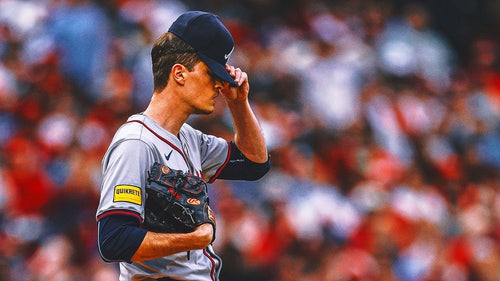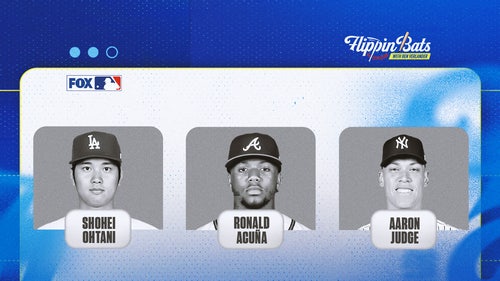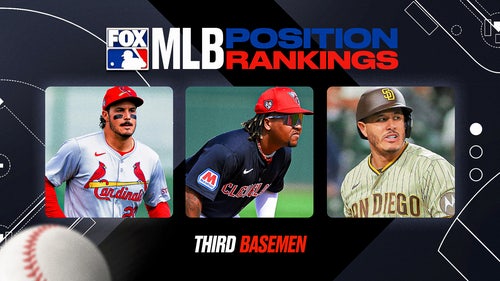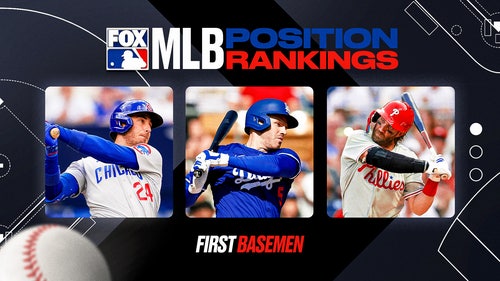
Life of Brian: After four decades of climbing, Snitker enjoying job as Braves manager
KISSIMMEE, Fla.—It has to have been the strangest series of job interviews Atlanta GM John Coppolella has ever conducted. First up for the manager’s position last September was interim skipper Brian Snitker, who arrived at the executive offices above Turner Field and offered to accept a demotion if he didn’t get the job. “Whichever way you go, I’m a Brave,” he said. A few days later, bench coach Terry Pendleton opened his session by suggesting that the team not choose him. “I think Brian deserves the opportunity to lead the ballclub,” he said.
“It was a weird process,” says Coppolella.
Not least because Atlanta already had a good idea of what it wanted to do. In search of a fulltime skipper going into the 2017 season after manager Fredi Gonzalez had been fired in mid-May, the front office interviewed much of the coaching staff—Snitker, Pendleton, first base coach Eddie Perez and third base coach Bo Porter—and brought in experienced managers Bud Black and Ron Washington, but the players had already cast their vote.
Snitker, now 61 and entering his 41st year with the organization, “deserved every bit of this job,” says first baseman and unofficial team captain Freddie Freeman, who expressed the sentiment at lunch with Coppolella early in the off-season, and then reiterated it to him over the next few days. Others players lobbied the front office as well, saying Snitker was the best manager they’d ever had.

Snitker had been a somewhat surprising choice when he took over for Gonzalez, who found out he was being let go when he got an email confirming a morning flight to Atlanta while the 9-28 Braves were in the middle of a four-game series in Pittsburgh. At the time Snitker was managing the Triple A Gwinnett Braves, but the front office did not choose him because he was viewed as a rising star. In fact, the decision was partly logistical: Of all the in-house candidates Atlanta was considering—the major league coaches and farm director Dave Trembley—moving Snitker would upset the organizational structure the least. The plan was to get through the season and then go from there.
With that kind of excitement surrounding his ascension, how could he help but succeed?
And yet the players, most of whom didn’t find out about the move until the club announced it, felt his impact immediately. He had worked with many of them in the minors—he has managed at every level of the Atlanta system since starting as a roving instructor in 1981—and as the major league third base coach from 2007 through ’13 until he was sent back to Triple A. The sigh of relief as Snitker entered the clubhouse on May 17 in his new role was almost audible. He did not arrive, as a rookie manager might, determined to put his fingerprints on the team—quite the opposite, in fact. “I’m not here to change things,” he told them. “I won’t sugarcoat anything, but I want to create an atmosphere where you can be successful.”
“The whole clubhouse just relaxed,” says Pendleton.
“It felt like we were 28–9,” adds Freeman.
Snitker was not so sure. In the late innings of his first game as manager, a 12–9 loss to the Pirates in which starting pitcher Aaron Blair allowed nine runs before recording his fourth out, Snitker turned to Pendleton and said with a laugh. “Man, I’m not sure you guys haven’t overachieved already.”

But his tranquility soon rubbed off on his players. Snitker understands how hard the game is because he couldn’t do what he wanted as a player. A complementary piece on the 1971 Macon (Ill.) High team whose magical, underdog run to the state championship game was chronicled by SI’s Chris Ballard in his book One Shot At Forever, Snitker spent four years at two colleges before signing with Atlanta as an undrafted free-agent in 1977. He batted .254 in parts of four seasons as a catcher and first baseman, with a six-game cameo at Triple A in 1978 the closest he got the majors.
In 1982, at age 26, he took over as manager of the Class A Anderson Club in the Sally League and in 19 years in the minors he also led teams in Durham, Sumter, Macon, Danville, Myrtle Beach, Greeville, Jackson (Miss.), Richmond and, finally, Gwinnett.
After 2,571 games as a minor league manager, Snitker guided Atlanta to a 59–65 finish, including an 18–10 run to close the season that helped make the team’s decision much easier. “The bottom line was the players really love Snit—and we saw the way the team ended,” says Coppolella. “Look, the players could love Snit and if instead of 59–65 if he had gone 39–85, it would be great if the players loved him but he wouldn’t have been the guy.” Nine days after the season ended, the Braves announced that Snitker would remain on a one-year deal with a club option.
In his first spring training as a big league skipper, Snitker mostly stays out of the clubhouse and checks in regularly with veteran players. He gave one player the day off after playing seven innings in an early-March game the night before, telling him to take his kid to nearby Disney World. When another player was scheduled for three at-bats but the middle innings were taking too long, Snitker removed him early and told him to hit the links. This is not out of character for a man who barred Freeman from the team for a day last September for the birth of his son. “We don’t need you here,” Snitker told him affectionately.

But it’s not just his laid-back nature that endears him to the team. The air had been slowly leaking out of his dream of managing in the majors for years, and his unexpected dismissal following the club’s 2013 Division Series loss to the Dodgers—after which, naturally, he told the front office, “I’m here for the Braves” and accepted his reassignment—had just about punctured it.
But Snitker is the tortoise, slowly achieving his goal and he knows it. His favorite baseball movie is Bull Durham, whose protagonist is a minor league journeyman, and his most moving moment as a manager came when, in the last few years, he informed a nine-year minor league lifer that he was being called up. He rarely does the head-fake—“We don’t have room for you on the roster anymore…’cause you’re going to Atlanta!”—because he wants to tell them the truth as quickly as possible, to give them every extra second of that moment.
Although he did do it to his wife, Ronnie, when he found he got the interim job: “I need you to help me pack.” “Pack? Where are you going?” “Pittsburgh.” “What are you going there for?” Grin. “To manage the Braves.”
So these veteran major leaguers chuckle at their skipper’s delight every day as he realizes anew that he gets to stick around. The fourth-oldest rookie manager in history looks every bit the child as he stands on the field and watches batting practice and chats animatedly with anyone who walks anywhere near him. Experiences his players have worn smooth are still sharp for him, and in turn become new again for them—an important quality for a team that will shoot for .500 this year until the farm system ranked No. 1 by Baseball America begins to arrive in 2018.
But Snitker does not need to wait until the Braves are printing playoff tickets to feel that he’s arrived. Every day there’s something else. “I’m sitting there in Dodger Stadium, thinking, Oh my God, I’m managing a game in Dodger Stadium!” he says. “Are you kidding me?”















































































































































